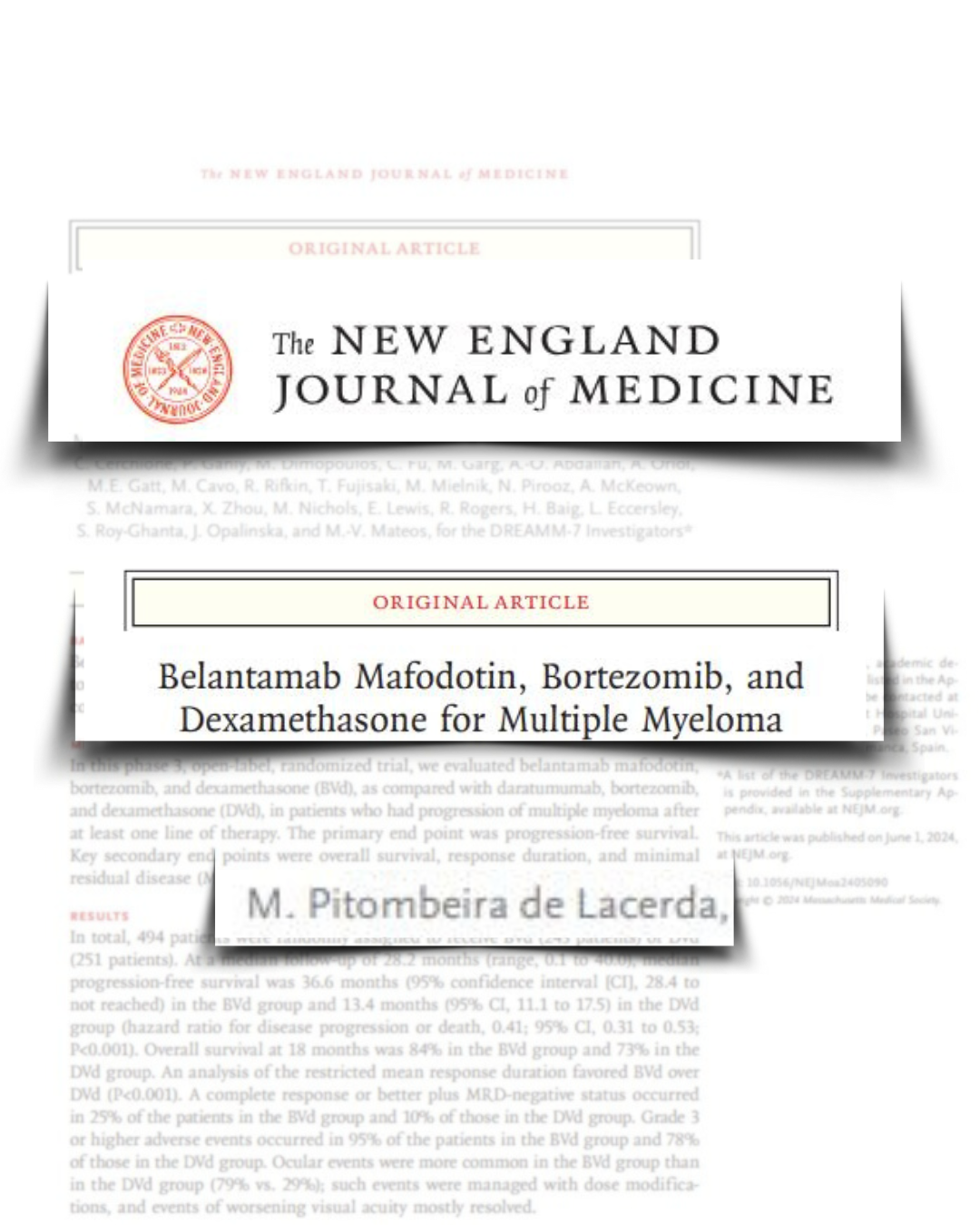
Marcelo Lacerda, a physician and professor in the Master's and Doctorate Program in Health and Environment at Univille, had an article published last month in The New England Journal of Medicine (NEJM), the second most influential medical publication in the world. The study, entitled "Belantamab Mafodotin, Bortezomib, Dexamethasone for Multiple Myeloma", investigated new approaches to treating multiple myeloma.
The professor was part of Dreamm-7, a research group made up of medical researchers of different nationalities and led by Dr. Vania Hungria, co-founder of the International Myeloma Foundation Latin America.
Multiple myeloma is a type of cancer that affects the bone marrow, and it is the third most common blood cancer worldwide. There is still no cure, and the average survival rate is currently between three and ten years. Therefore, the promising results of the study offer new perspectives on prolonging remission of the disease and improving patients' quality of life.
The study
The clinical study evaluated the efficacy and safety of therapeutic combinations involving a new drug–abelantamab mafodotin–in patients who had already received previous treatments but did not respond to the effects or received a new diagnosis after a period of time. The results showed significant improvements in so-called progression-free survival, that is, in the time spent living without the cancer worsening, with a reduction of 59% in risks.
“What we observed in this study was a gain in time in remission, more time with the disease under control, which benefits quality of life. Multiple myeloma poses a high risk of fracture, anemia, and kidney failure. Then, we were able to improve the patient’s clinical condition during treatment in medium and long term, so that the patient does not suffer as much,” celebrated the doctor.
The study carried out was phase 3, generally considered the last necessary for approval of the new treatment by regulatory bodies.
Patients from Joinville
Participants were treated at the Joinville Hematology and Oncology Center, third in number of patients recruited for the research, contributing to scientific advances and access to innovative treatments through the Unified Health System.
In addition to the scientific benefits, the participation of Univille doctor and professor in the investigation is also relevant to the academic training of their students. “This opportunity to get involved in clinical studies from the undergraduate level strengthens the training of future doctors and boosts clinical research in the country,” highlights Univille's Pro-Rector of Research and Postgraduate Studies Paulo França.
Lacerda is one of the leaders of the Univille Hematology League, an initiative that seeks to expand student involvement in research and clinical practice. This initiative not only enriches students' education, but also contributes to improving public health services by applying research results to clinical practice.
“It is a differential in training that can benefit the whole society. We must strive to bring research into public health, increasing the quality of these services and providing better options to promote health and treat diseases in society,” concludes the doctor.